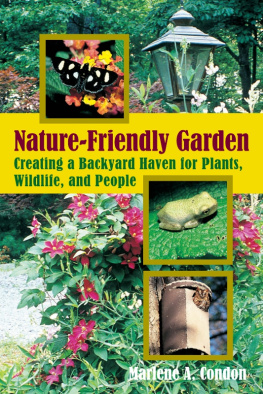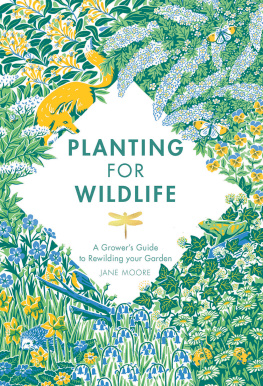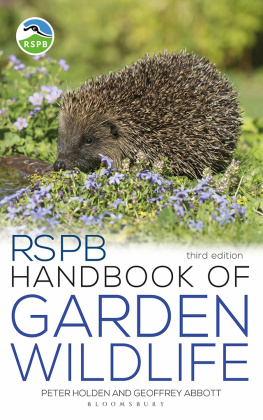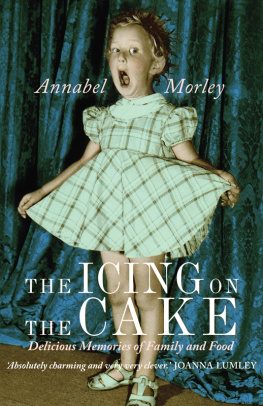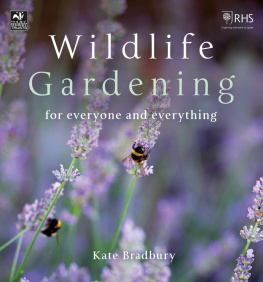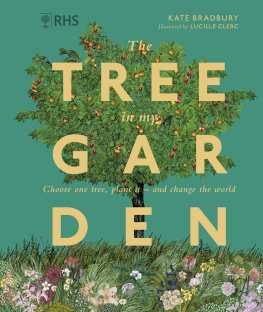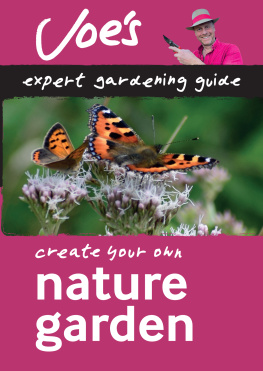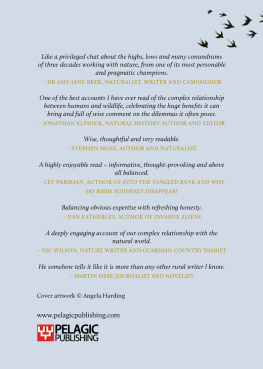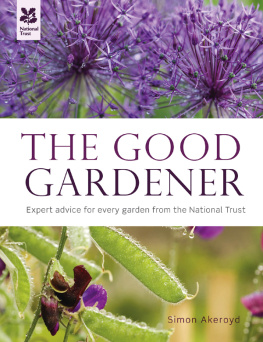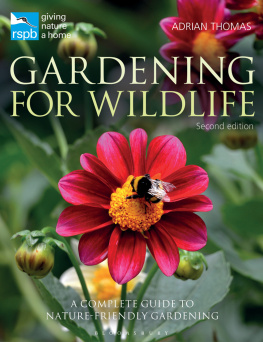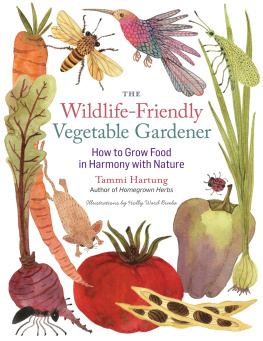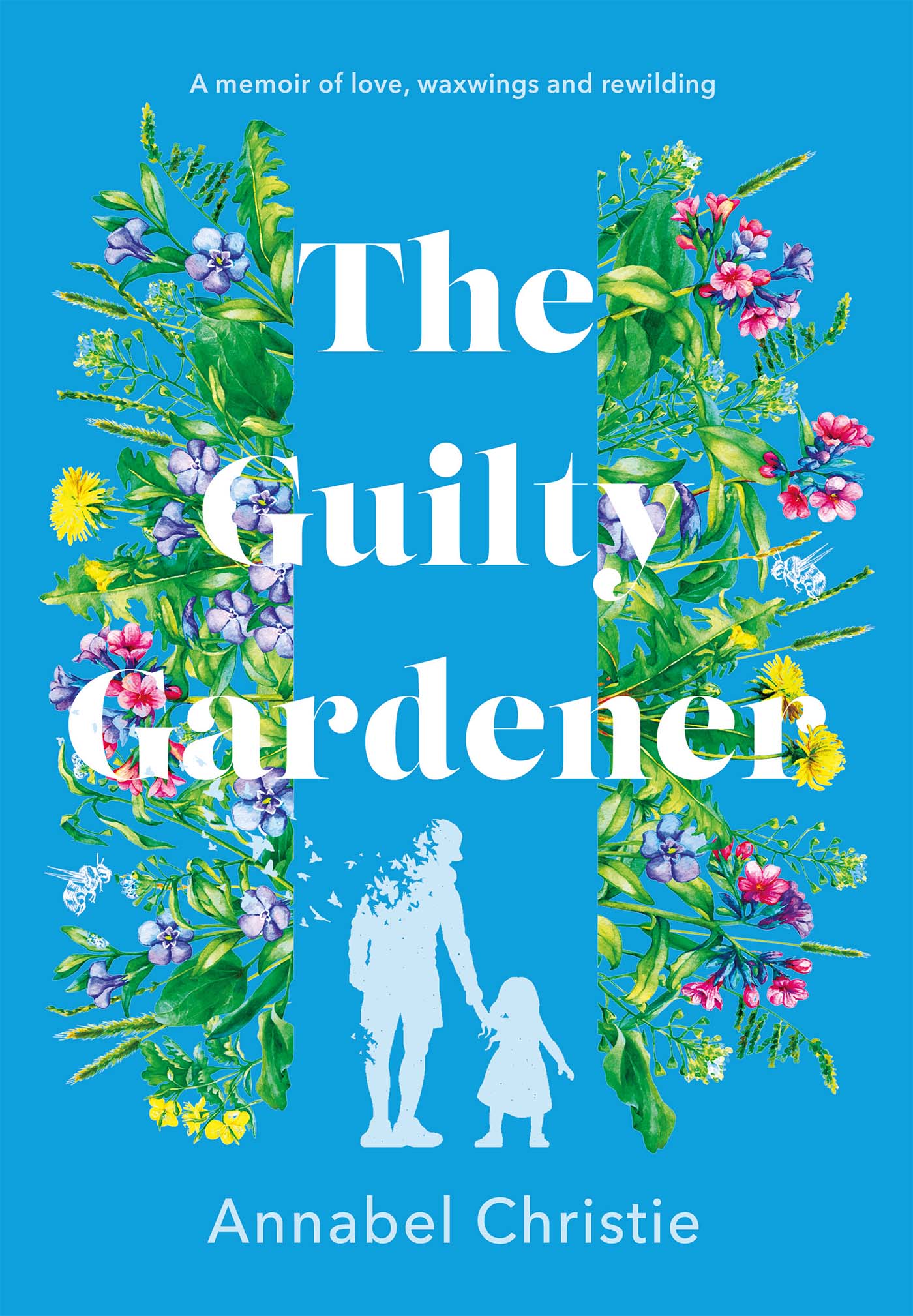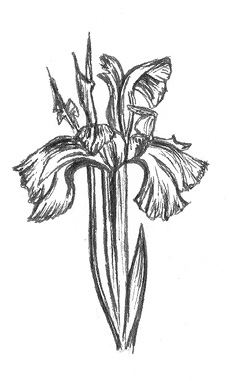One
The Letter
It was my fathers letter that finally did it, rediscovering it after all these years. It was like a thunderbolt to my conscience, a silent plea from the grave reminding me of my magical childhood garden, broken promises and my failure to make amends.
I knew at once I had to act. I couldnt prevaricate any longer and watch helplessly as everything my father strove for, everything he believed in and once taught me, fell asunder and was lost forever. I would put nature first again and do everything in my power to help save our precious wildlife before it was too late. And I would do this in the one place I knew I could make a difference my own neglected garden. I owed it to Dad, I owed it to the children but, most of all, I owed it to nature.
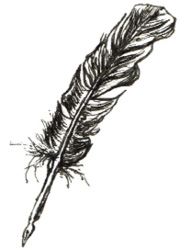
When he passed away three years ago from cancer, my dear father left me with a gaping hole in my heart and a mountain of regrets. Throughout his seventy-seven years on this earth, he had always put nature first in everything he sought to do and although he would never have admitted it he was far too conservative for that he was an activist at heart, a fervent environmentalist who would have fought tooth and nail to protect our natural heritage.
If he were here today, he would be devastated by the catastrophe unfolding in our natural world, and the continuing threat to our planet from climate change and other man-made disasters. He would be out there campaigning for a wilder Britain, and I am certain he would be telling me, over and over again, to get off my lazy, negligent backside and rewild too.
His letter could easily have not been found. It was tucked inside the gilt-edged front cover of an antiquated butterfly book and slipped onto my lap like a billet doux as I lifted the old, heavy tome from the coffin depths of my fathers leather-bound trunk. It was the third anniversary of his death and the first time I had dared explore the musty interior of his school chest, curious but nervous to uncover what childhood secrets it might hold. When I prised open the trunks metal clasps, I was amazed to discover it was packed with my fathers precious collection of wildlife and gardening books, each one a reminder of my nature-filled past.
The tome which hid the letter was my fathers first edition of the Natural History of British Butterflies by the renowned lepidopterist, Frederick William Frohawk. Dad and I had often shared it together when I was still his little girl and held in natures thrall. Snuggled on his knee, in the light of the fire, I would marvel at the exquisite, intricate drawings of Frohawks different butterflies while he related, in minute detail, the life stages of each species and their individual characteristics, always leaving me intrigued and eager for more.
Moments like this brought me close to my father and inspired a childhood passion for nature that defined our special relationship in the first decade and a half of my life.
Dad realised early on that we shared this love of wildlife and would often invite me to help him in the garden. I readily accepted, following him like a lapdog through the jungle of long meadow grass and wildflowers that cloaked our back garden, eager to listen and learn from the great master as he clipped his roses or collected seeds to pot later. In return for imparting his botanical knowledge, he got me sowing and hoeing vegetables each spring in his resplendent Victorian glass greenhouse, planting flowers for butterflies, bees and caterpillars, building log piles for beetles and lizards and making cosy shelters for foxes and hedgehogs. I was never bored when I was with him but in the rare moments I was at a loose end, Dad would fling me a packet of wildflower seeds and instruct me to scatter them liberally, saying that each seed was a tiny grain of magic that, with the first warm rays of sunshine, would alchemise into food for hungry pollinators. I could barely wait for the snow to melt and the advent of summer when the seeds tiny flowerheads sprouted through the grass, transforming our garden into a kaleidoscope of vibrant colour and insect life.
I loved Dads eternal enthusiasm for nature, and perhaps his greatest legacy to me and my older brother, Simon, was teaching us that we were part of nature too, simple animals just like the badger, the fox and the hare.
Our relationship with nature is actually more important than any other, he said to me one summers afternoon in 1977 as we sat together on the terrace of our family home in Kent watching a small mouse nibbling some wild strawberries. Break the link, and we all suffer. He drew a circular diagram then, like a teacher would draw at school, showing me how mice eat insects and plants (even fungi) and how animals higher up the food chain the fox, owl, hawk and snake rely on the mice and other small creatures to sustain them. Even the least exciting lichen on a rotting tree trunk will be nectar for some garden insect or become nesting material for a bird. Every living organism in the garden has its part to play in the rich tapestry of life, he proudly told me.
Our green odyssey continued in harmony for most of my childhood and early teens until, around my fifteenth birthday, I made the grand gesture that I didnt want to help him anymore in the garden; I was through with potting plants and sowing seeds and no longer cared as much about the wildlife. I had better things to do; it was 1980 and I wanted to be out partying with school friends, having fun and savouring my full quota of teenage kicks. My days of being my fathers lapdog, grounded at home and in the garden, were well and truly over.
I know he was devastated because he retreated to the sanctity of his greenhouse for what seemed like an eternity and never once asked me to help him again in the garden. I felt a little ashamed of letting him down but not enough to change course. Then, a few years later, after I had completed my degree and was on the cusp of leaving home to go travelling, he sent me the letter. It was the first proper correspondence he had ever written to me and the one and only time I remember him letting his feelings truly show. I kept it for many years in a drawer in my childhood bedroom in Kent and then, after he died and my mother moved closer to me, it travelled with her in the antiquated trunk.


